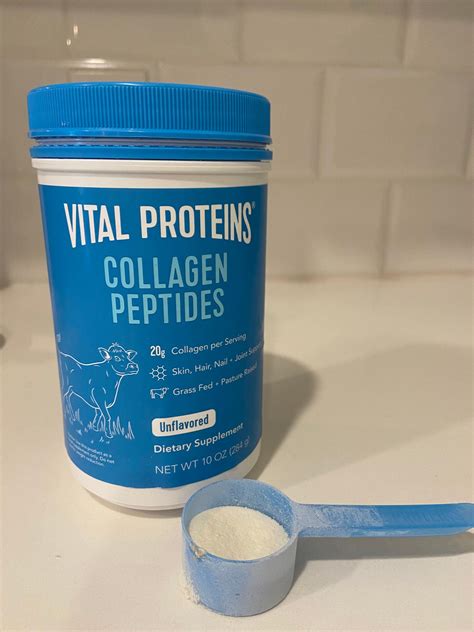Introduction

Collagen, a vital protein found in connective tissues throughout the body, plays a crucial role in maintaining the health and well-being of pets. From bones to skin and joints, collagen provides structural support, elasticity, and hydration. As pets age, their natural collagen production declines, potentially leading to a range of health issues. In this article, we delve into the importance of collagen for pets, exploring its benefits, sources, and implications for pet health in 2025 and beyond.
Collagen: The Body’s Essential Building Block
Collagen comprises over 30% of the total protein content in animals, making it the most abundant protein in the body. It is a complex molecule composed of three polypeptide chains twisted together in a triple helix. This unique structure provides strength, flexibility, and resistance to stretching.
Types of Collagen in Pets
There are at least 28 types of collagen in mammals, each with a specific role and distribution in the body. The most common types found in pets are:
- Type I Collagen: Forms bones, skin, tendons, and ligaments.
- Type II Collagen: Found in cartilage, providing cushioning and shock absorption.
- Type III Collagen: Provides support for skin, muscles, and blood vessels.
- Type IV Collagen: Found in basement membranes, which filter substances and support cells.
The Importance of Collagen for Pets
1. Joint Health
Collagen is a major component of cartilage, which cushions and protects bones at the joints. As pets age, their natural collagen production decreases, leading to cartilage breakdown and the development of osteoarthritis. Supplementing with collagen can help maintain joint health, reduce inflammation, and improve mobility.
2. Bone Strength
Collagen provides structural support for bones, giving them strength and flexibility. In puppies and kittens, collagen is essential for bone development, while in older pets, it helps prevent osteoporosis and fractures.
3. Skin Health
Collagen forms the main scaffolding of the skin, providing elasticity, firmness, and hydration. As pets age, collagen loss contributes to wrinkles, sagging, and skin dryness. Supplementation can improve skin elasticity, reduce inflammation, and promote a youthful appearance.
4. Wound Healing
Collagen plays a crucial role in the healing process, stimulating the formation of new tissue and reducing inflammation. It enhances wound closure, reduces scarring, and improves overall skin regeneration.
5. Immune Function
Collagen contains amino acids that support immune cell function and antibody production. Supplementation can help boost immunity, reduce inflammation, and protect pets from infections.
Sources of Collagen for Pets
Collagen for pets can be obtained from various sources:
- Dietary Sources: Small amounts of collagen can be found in animal-based foods such as meat, poultry, and fish. However, these sources alone may not provide sufficient quantities for optimal health.
- Supplements: Collagen supplements are available in various forms, including powders, tablets, and chews. They provide a concentrated source of collagen that can be easily absorbed by the body.
- Veterinary Injections: In some cases, veterinarians may administer collagen injections directly into affected joints to provide targeted relief and improve mobility.
Benefits of Collagen Supplementation for Pets
Studies have shown that collagen supplementation can provide several benefits for pet health:
- Reduced Joint Pain: In a study published in the Journal of Veterinary Internal Medicine, dogs with osteoarthritis supplemented with collagen experienced significant reductions in joint pain and improved mobility.
- Improved Cartilage Health: A study in cats showed that collagen supplements increased cartilage thickness and decreased inflammation in the joints.
- Enhanced Skin Elasticity: A study in rabbits demonstrated that collagen supplementation improved skin elasticity and reduced wrinkles.
- Accelerated Wound Healing: In a study on dogs, collagen injections accelerated wound healing and reduced scarring.
The Future of Collagen in Pet Health
The demand for collagen supplements for pets is expected to grow in the coming years. As pet owners become more aware of the importance of collagen for their furry companions, they will seek out innovative and effective ways to maintain their health and well-being.
- Personalized Nutrition: Advancements in pet nutrition will allow for the development of customized collagen supplements tailored to the specific needs of each pet.
- Novel Delivery Systems: New technologies will lead to the development of more convenient and effective delivery methods for collagen, such as transdermal patches and nano-emulsions.
- Collagen-Based Therapies: Ongoing research may uncover novel uses for collagen in pet health, such as regenerative therapies for joint repair and wound healing.
Conclusion
Collagen is an essential protein that plays a vital role in maintaining the health and well-being of pets. As pets age, their natural collagen production declines, leading to a range of health issues. Supplementation with collagen can help maintain joint health, improve bone strength, enhance skin health, accelerate wound healing, and boost immunity.
In 2025 and beyond, the importance of collagen for pets will continue to grow. Advancements in pet nutrition, delivery systems, and therapeutic applications will provide innovative and effective ways to maintain the health and happiness of our furry companions for years to come.





















